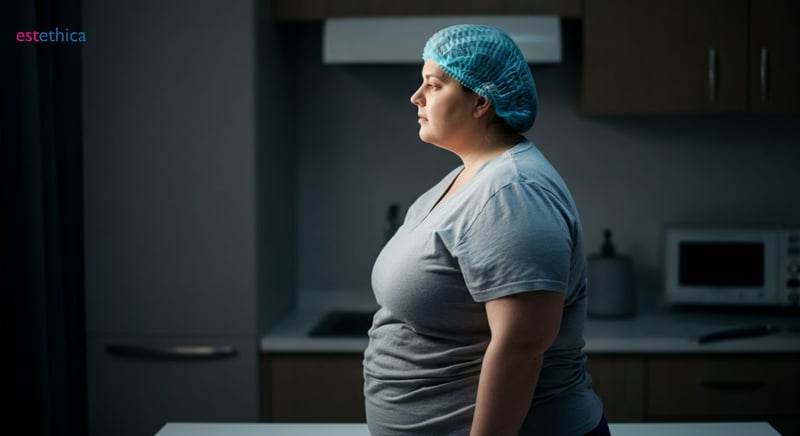Essential Insights on Stomach Surgery: What You Need to Know
Uncover the essential facts about stomach surgery and its impact on health.
Stomach surgery, a crucial component in modern medicine, addresses various health issues ranging from obesity to cancer. Navigating the complex world of stomach surgery involves understanding the types, preparation, recovery, and long-term care post-operation. This guide will illuminate the paths toward informed surgical decisions and optimal recovery, ensuring a healthier future.
What You Need to Know About Stomach Surgery
Understanding Different Types of Stomach Surgery
Stomach surgery encompasses a variety of procedures, each tailored to address specific health issues. Gastric bypass, for instance, is often recommended for severe obesity, as it significantly reduces stomach size and alters digestion. Sleeve gastrectomy involves removing a portion of the stomach, creating a sleeve-like structure, which limits food intake and is effective for weight loss. Gastric banding, on the other hand, uses an adjustable band to control stomach size, offering a reversible option for weight management. Each procedure has unique benefits and potential risks, making it essential to choose based on individual health needs and goals.
Key Considerations Before Undergoing Stomach Surgery
- Comprehensive health evaluation to determine the most suitable procedure.
- Understanding potential risks and benefits of each surgical option.
- Commitment to lifestyle changes post-surgery for optimal results.
Before deciding on stomach surgery, patients should undergo a thorough health assessment to identify the most appropriate procedure. This evaluation considers factors such as existing medical conditions, weight loss goals, and overall health. Understanding the potential risks and benefits of each surgical option is crucial for informed decision-making. Additionally, a commitment to lifestyle changes, including diet and exercise, is vital for achieving and maintaining desired outcomes post-surgery.
Steps to Prepare for Stomach Surgery
- Consult with a healthcare provider to discuss surgical options and expectations.
- Undergo necessary pre-surgery tests and evaluations.
- Adopt a pre-surgery diet and exercise regimen as advised by medical professionals.
Preparing for stomach surgery involves several critical steps. Initially, consulting with a healthcare provider helps clarify surgical options and set realistic expectations. Patients must then undergo various pre-surgery tests and evaluations to ensure they are suitable candidates for the procedure. Adopting a pre-surgery diet and exercise regimen, as advised by medical professionals, can enhance surgical outcomes and facilitate a smoother recovery process.

How to Prepare for Your Stomach Surgery
Essential Pre-Surgery Consultations and Tests
Before undergoing stomach surgery, it is crucial to engage in comprehensive consultations with your healthcare provider. These discussions help tailor the surgical approach to your specific health needs and ensure you understand the procedure's implications. For example, if you have a history of diabetes, your doctor might recommend additional monitoring and adjustments to your treatment plan. Additionally, undergoing necessary tests, such as blood work and imaging, is vital to assess your overall health and readiness for surgery. These tests can reveal underlying conditions that may need to be addressed beforehand, such as anemia or vitamin deficiencies.
Dietary Adjustments and Lifestyle Changes
- Focus on a high-protein, low-fat diet to promote healing.
- Incorporate regular physical activity to enhance recovery.
- Limit alcohol and caffeine intake to reduce surgical risks.
Adhering to dietary recommendations is a critical component of preparing for stomach surgery. A high-protein, low-fat diet not only aids in weight management but also promotes tissue healing post-surgery. For instance, incorporating lean meats, legumes, and low-fat dairy can provide the necessary nutrients without excess calories. Additionally, engaging in regular physical activity, such as walking or swimming, can improve cardiovascular health and enhance recovery. Limiting alcohol and caffeine intake is also advised, as these substances can interfere with anesthesia and increase surgical risks.
- Schedule a pre-operative appointment to finalize surgical plans.
- Arrange for post-surgery support and transportation.
- Prepare your home for a comfortable recovery environment.
As the surgery date approaches, scheduling a pre-operative appointment is essential to finalize surgical plans and address any last-minute concerns. This meeting ensures that all necessary preparations are in place and that you are mentally and physically ready for the procedure. Arranging for post-surgery support, such as having a family member or friend assist with daily activities, is crucial for a smooth recovery. Additionally, preparing your home by setting up a comfortable recovery area with easy access to necessities can significantly enhance your post-operative experience.

Recovery Time: What to Expect After Surgery
Understanding the Recovery Process
Recovery from stomach surgery, such as gastric surgery or weight loss surgery, is a gradual process that requires patience and adherence to medical advice. Initially, patients may experience discomfort and fatigue, which is normal as the body heals. Hospital stays can range from a few days to a week, depending on the complexity of the procedure and individual health conditions. During this time, healthcare professionals closely monitor vital signs and manage pain to ensure a smooth transition to home care.
Key Factors Influencing Recovery
- Type of surgery performed and its complexity.
- Patient's overall health and pre-existing conditions.
- Adherence to post-operative care instructions and diet.
The recovery time after gastric surgery is influenced by several factors. The type of surgery, whether it is a gastric bypass or laparoscopic surgery, plays a significant role in determining the recovery timeline. Patients with pre-existing conditions, such as diabetes or hypertension, may require additional care and monitoring. Adherence to post-operative care instructions, including dietary guidelines, is crucial for preventing complications and promoting healing.
- Follow a specialized diet to support healing and digestion.
- Gradually increase physical activity as advised by healthcare providers.
- Attend regular follow-up appointments to monitor progress.
Post-surgery, patients are typically placed on a specialized diet that progresses from liquids to soft foods, eventually returning to regular meals. This diet is designed to support healing and ensure proper digestion. Gradually increasing physical activity, such as walking, helps improve circulation and prevent complications like blood clots. Regular follow-up appointments with healthcare providers are essential to monitor recovery progress and address any concerns promptly.

Best Diet Practices Following Stomach Surgery
Transitioning from Liquids to Solids
After stomach surgery, such as gastric surgery or weight loss surgery, the dietary transition is crucial for recovery. Initially, patients start with clear liquids to prevent dehydration and promote healing. For example, broth and clear juices are recommended during the first few days. Gradually, the diet progresses to include pureed foods, like blended soups and smoothies, which are easier to digest and provide essential nutrients.
Nutrient-Rich Food Choices
- Incorporate lean proteins, such as chicken and fish, to aid muscle repair.
- Include fiber-rich foods, like oatmeal and vegetables, to support digestion.
- Opt for low-sugar fruits, such as berries, to provide vitamins without excess calories.
Post-surgery, focusing on nutrient-rich foods is vital for recovery and weight management. Lean proteins, such as chicken and fish, help repair tissues and maintain muscle mass. Fiber-rich foods, like oatmeal and vegetables, support digestion and prevent constipation, a common issue after surgery. Additionally, low-sugar fruits, such as berries, offer essential vitamins and antioxidants without adding unnecessary calories.
- Begin with clear liquids to ensure hydration and initial healing.
- Progress to pureed foods to introduce more nutrients safely.
- Gradually incorporate soft solids, monitoring tolerance and digestion.
Following a structured dietary progression is essential for a successful recovery after stomach surgery. Starting with clear liquids ensures hydration and supports initial healing. As the body adjusts, introducing pureed foods provides more nutrients while remaining gentle on the digestive system. Eventually, soft solids are incorporated, allowing patients to monitor their tolerance and digestion, ensuring a smooth transition back to regular eating habits.
Innovative Stomach Surgery Techniques for Optimal Health
Structured Recovery Plans for Enhanced Post-Surgery Outcomes
Frequently Asked Questions
What is stomach surgery and what conditions does it address?
How should I prepare for stomach surgery?
What is the recovery time after gastric surgery?
What are the best diet practices following weight loss surgery?
Is gastric surgery safe and effective for weight loss?
Discover the path to your healthiest and most beautiful self with estethica's award-winning services. Call now for a free consultation and let our expert team guide you on your journey to wellness and aesthetic excellence.
📞 Call for Your Free Consultation Today!